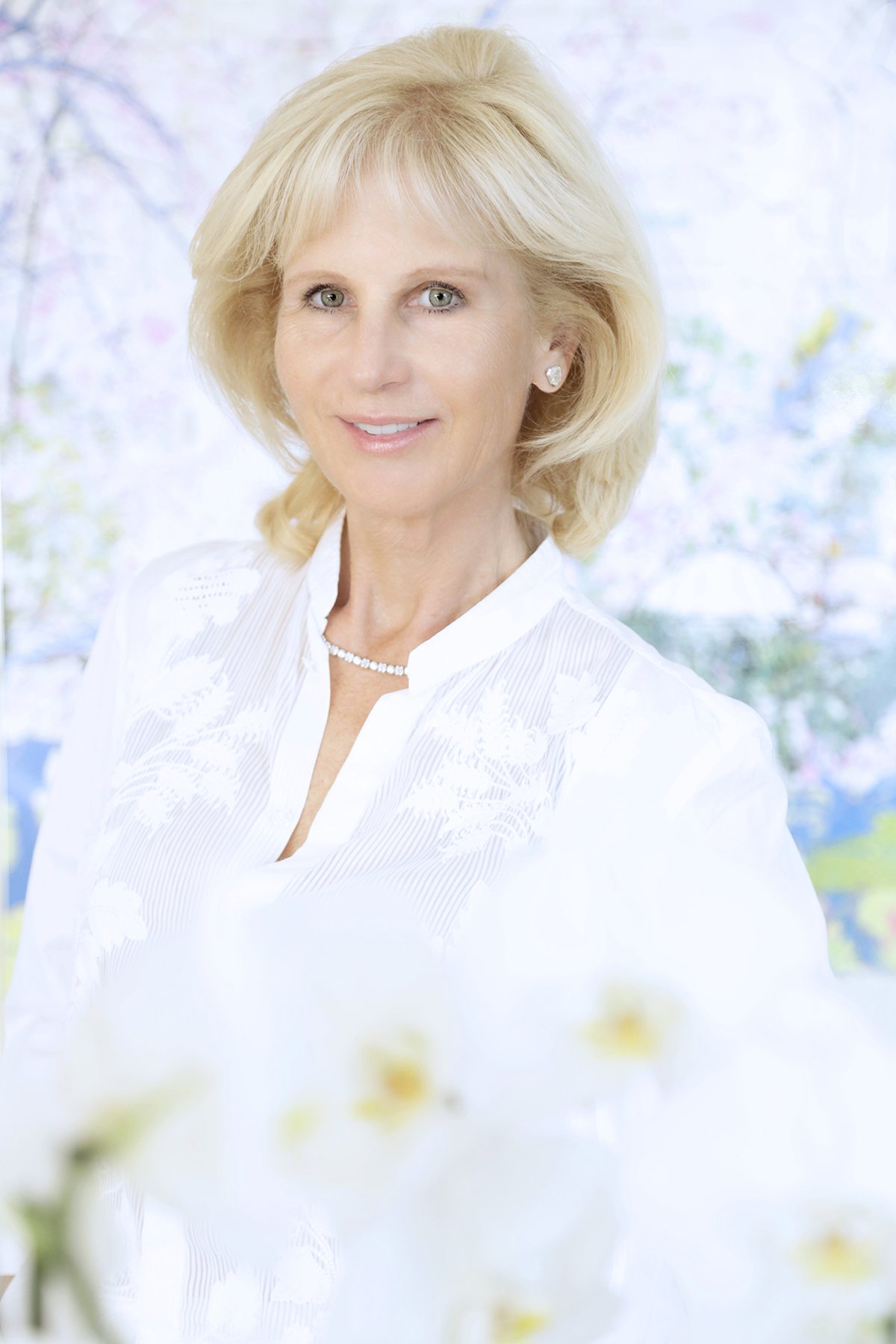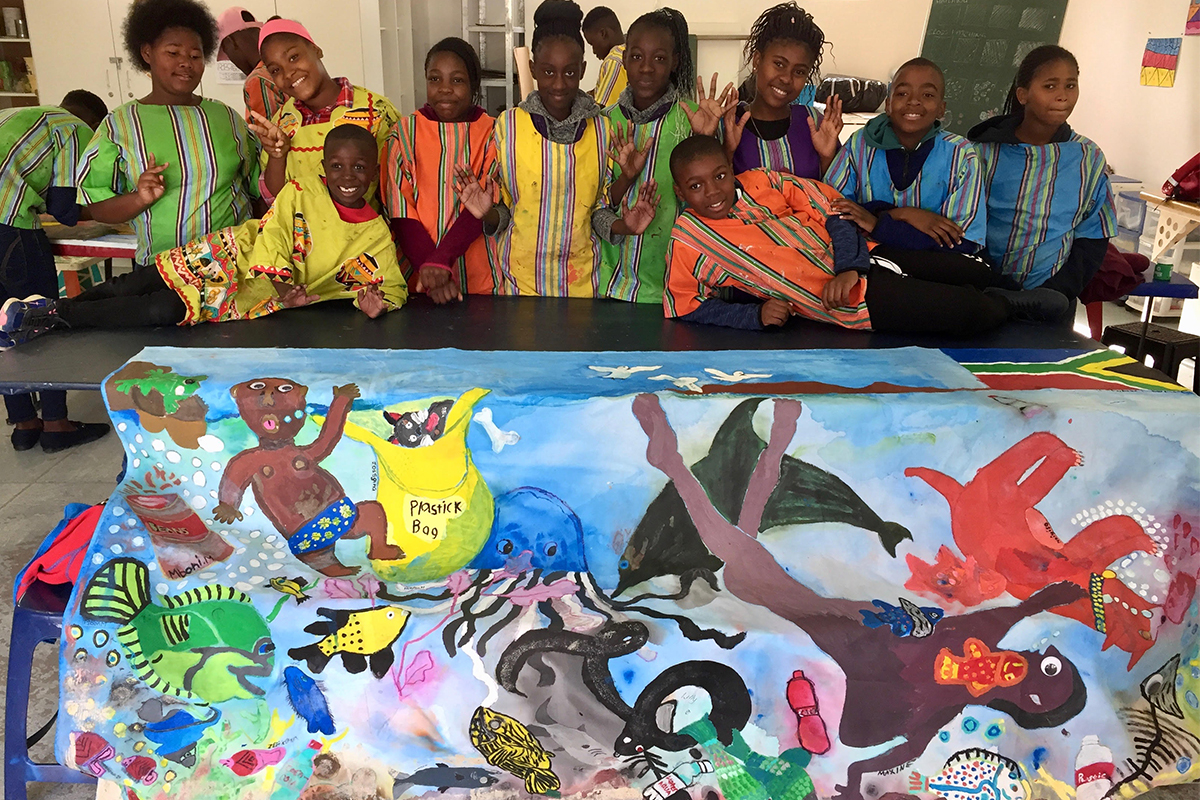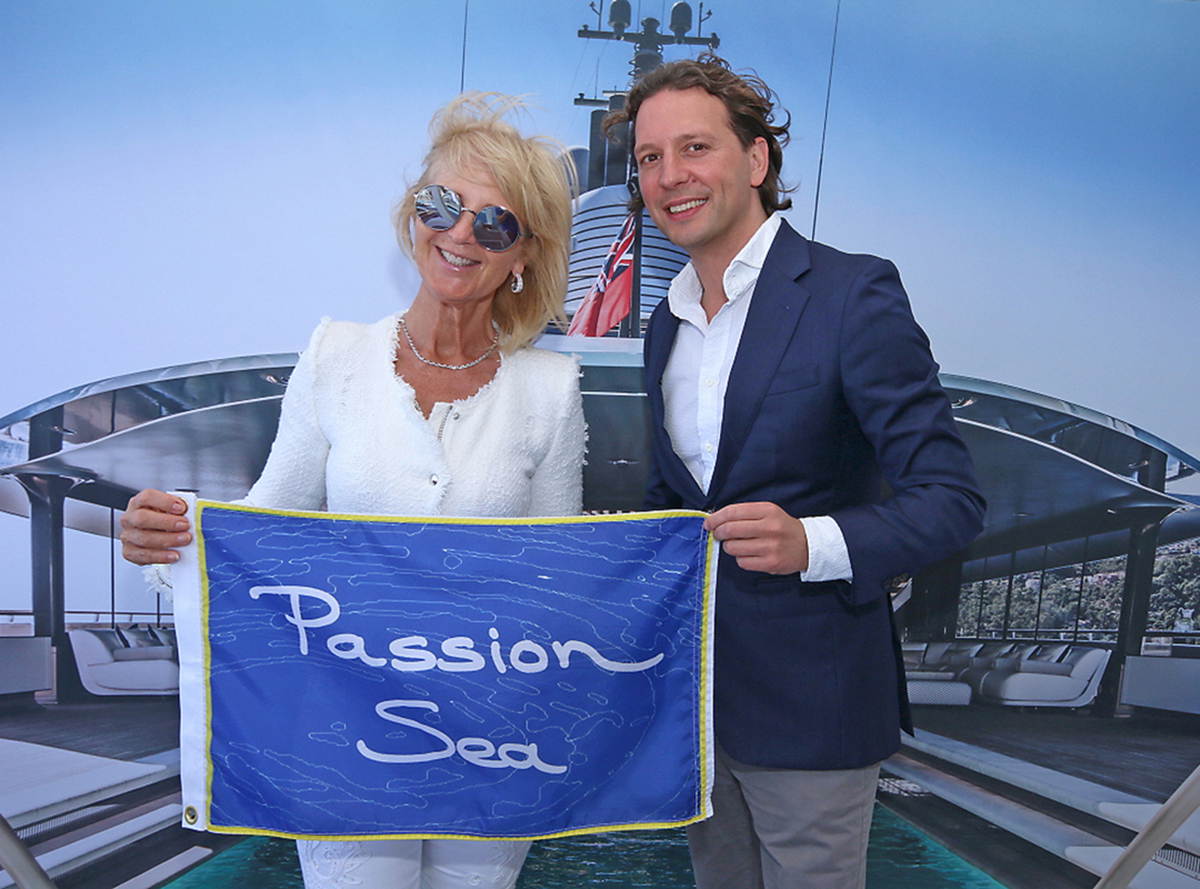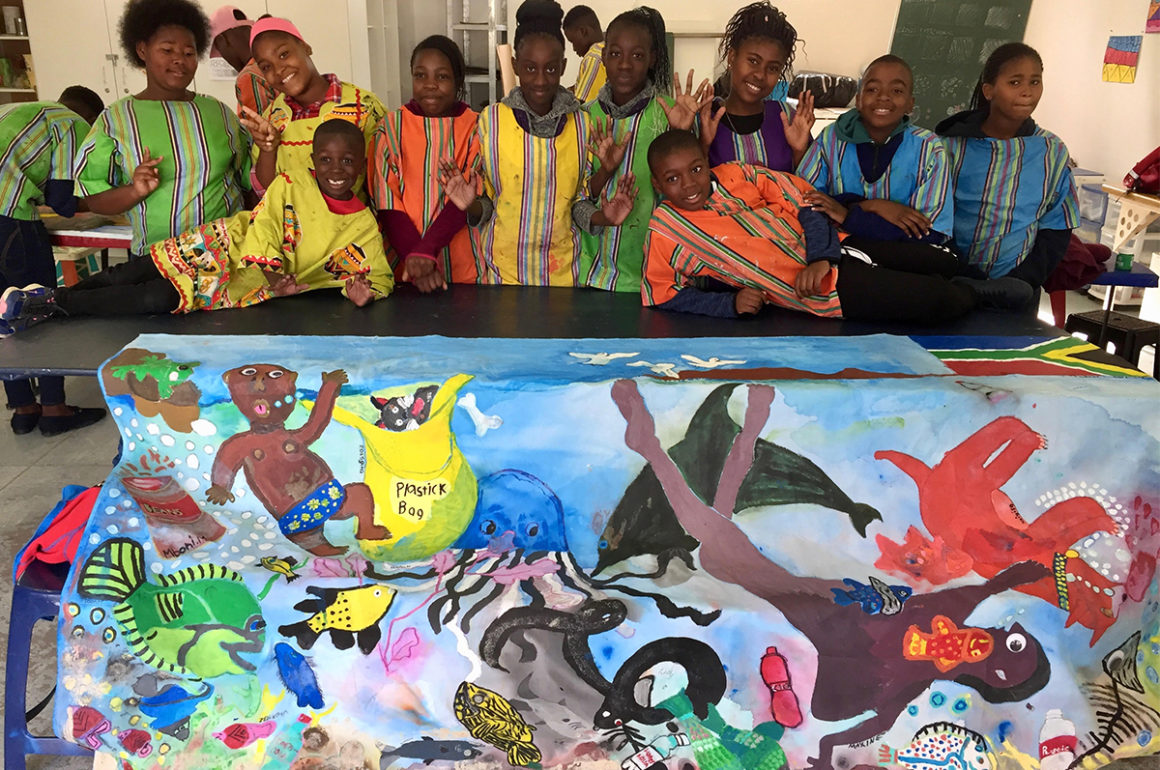
Helga Piaget, Founder of Passion Sea
Helga Piaget is the founder of the Monaco-based non-profit organisation Passion Sea, which reaches out to schools around the world with educational and artistic initiatives around ocean conservation. Here, Piaget speaks to LUX about pushing ocean conservation to the top of the youth agenda and the role of art
If passion could save the oceans, Helga Piaget would have done the job already. An engaging mix of fire and focus, she is sitting with LUX at the Yacht Club de Monaco, speaking about her programme to bring awareness of ocean issues to the younger generation through her art programmes at her non-profit organisation Passion Sea. Born in Germany and based in Monaco, Piaget spends much of her time engaging with schools to try to create a new generation who understand the issues facing the oceans, and the routes to resolution.
Follow LUX on Instagram: luxthemagazine
Our location is not a coincidence: Monaco’s Prince Albert is one of the most significant high-profile supporters of ocean causes, something in the DNA of the principality with the celebrated Oceanographic Museum and Prince Albert II of Monaco Foundation, as well as being the President of the Yacht Club itself.
LUX: Passion Sea strives to engage young children in the conservation debate. Why?
Helga Piaget: Education is huge. Children are the future – the next adults, and the next leaders. So, if you educate them in the right way, they might be able to make a change. I specialise with younger children because they are sponges. They educate others: when they play, they ask the other kids, ‘Why did you throw that [litter] on the ground?’ Then, they often go home and realise how much trash and plastic is in their households, and the parents learn, too. I think they know even more than us sometimes.

Passion Sea runs educational programs across the globe
LUX: Explain the role of art in Passion Sea’s efforts.
Helga Piaget: We educate through art, because when children paint something, or they have to do poetry, it stays in their brain. You have to get it anchored in their brain, and [the best way to do] that is through art. It makes them happy, too, learning in a happy way. We did a book with artworks from around the world [in 2017], but for the last two years we have been working on [producing] big flags with schools worldwide, with one from each country. It’s really something to be proud of. I’m waiting to do an exhibition on it, but for the moment it’s not the right time. We already have 25 countries, and beautiful works which are all related to the topic of water. A whole class of children [produces] each work: that’s what’s beautiful. When it’s ready, I often go to the school and have a wonderful event with the mayor and the parents. Normally the schools do other programmes afterwards for conservation in their area. It never stops with us.
Read more: James Chen on providing vision for all
LUX: So, for Passion Sea, creativity is a form of activism?
Helga Piaget: Yes. It’s a snowball system, from one [project] to the other. We find one school, and we meet with the directors and teachers who are willing to participate. Then, through the locals, we find the next connection to the next school. If you start in one good point, you get the connections afterwards, and they start working with you. I am very lucky because I have travelled nearly the whole world with Piaget, so I have good connections in most countries. Now I live in Monaco, which I am a citizen of, so I am very well-connected there. Our prince [Albert of Monaco] does a lot there. It’s very important to have people like him, who have a name, in my book. If you don’t have names, people are less interested. They like heroes, someone they can follow. It makes them listen more.

Piaget with Paris Baloumis, Oceanco’s marketing director
LUX: How difficult has it been to incentivise those in the high net worth community to care about the oceans? Does it ever feel like you like you are fighting a losing battle?
Helga Piaget: Some days it does feel like that. It’s very difficult, but if you have one or two people who understand, it gives you the energy to continue. Two years ago, I was at the Monaco Yacht Show and I was the only one who was speaking about sustainability; everyone [else] was just thinking about money. But the biggest luxury is water, and fresh air. If the water is not clean, who can sell boats? People won’t go to dirty lakes or seas. Everyone has to work together. So I said, ‘The money is in the water.’ Ever since, we have been contacting marinas and boat owners to give them flags for the boats. The flag means they are respecting and protecting the waters. [It’s a way of getting people to] think about how they live, to not to buy too much throwaway material, and to use better products when they clean their boats. A year later there were four, five, six events in construction technology, and everyone was cleaning with these new products. I was delighted. I am really just trying to make people aware. When people see me now, they always ask questions about the topics of nature. They say I am the mother of the oceans!
LUX: What is the nature of philanthropy?
Helga Piaget: Giving the time and energy to make something positive happen. It doesn’t need to be worldwide. Even if it’s small – it can be next door, in the community – it is amazing to see something happen. For me, it’s water and the environment. There is so much being done, but there is still so much to do. Water connects us all, with our body, with our whole planet. It’s important. You must feel where your heart goes – for you need a big passion and you need a lot of time – then think as big as you want.
Find out more: passionsea.com
As with all of our philanthropists, readers who have their own foundations and philanthropic interests are encouraged to reach out to our interview subjects and their institutions directly.







Recent Comments